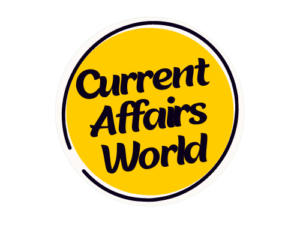Top 10 Important UPSC/SSC Interview Questions with Answers.
1. Real-Life Question: How would you handle a situation where you had to make a critical decision under pressure?
Answer: Critical decision-making under pressure requires a calm and analytical approach. I would first assess the situation by gathering all available information. Then, I would prioritize the most urgent and impactful aspects, consulting stakeholders if possible. By weighing the potential risks and outcomes, I would choose the best course of action. For instance, if a policy implementation issue arises, I would focus on ensuring public welfare while adhering to the law.
2. Indian Politics: Can you explain the significance of the Right to Information (RTI) Act in Indian democracy?
Answer: The RTI Act, enacted in 2005, empowers citizens to seek information from public authorities, promoting transparency and accountability in governance. It has been instrumental in exposing corruption and ensuring public participation in policymaking. For example, through RTI, citizens have unearthed significant scams, ensuring corrective measures in governance.
3. Geography: Why is the Indian monsoon crucial for the country’s agriculture?
Answer: The Indian monsoon is vital as it accounts for approximately 80% of the annual rainfall, directly influencing agricultural productivity. Since over 50% of India’s farmland is rain-fed, crops like rice, wheat, and pulses heavily depend on monsoon rains. A delay or deficiency in monsoon often results in droughts, affecting food security and the economy.
4. Real-Life Question: If you witnessed corruption in your organization, how would you address it?
Answer: Witnessing corruption is a challenging situation, but it must be addressed with integrity. I would gather credible evidence and report the issue to the appropriate authority or anti-corruption body. Simultaneously, I would ensure my actions remain within the legal framework to avoid any retaliation. Transparency and accountability are paramount for ethical governance.
5. Indian Politics: What is the role of the Election Commission of India in ensuring free and fair elections?
Answer: The Election Commission of India (ECI) is an independent constitutional body responsible for conducting elections to Parliament, state legislatures, and the offices of the President and Vice President. It ensures free and fair elections by implementing the Model Code of Conduct, monitoring election expenses, and ensuring transparency in the voting process through measures like VVPATs and EVMs.
6. Geography: What is the significance of the Himalayan region in India’s water resources?
Answer: The Himalayan region is the source of major rivers like the Ganga, Brahmaputra, and Indus, which are vital for India’s water supply. It sustains agriculture, hydroelectric power, and drinking water needs for millions. Moreover, the Himalayan glaciers act as natural water reservoirs, ensuring a steady flow of rivers, especially during summers.
7. Real-Life Question: How would you resolve a conflict between two teams with opposing viewpoints?
Answer: Resolving conflicts requires empathy, communication, and negotiation. I would start by understanding both perspectives and identifying common goals. Facilitating open dialogue and encouraging both teams to propose solutions can help achieve a mutually acceptable resolution. Clear communication and compromise are essential to foster collaboration.
8. Indian Politics: What is the importance of the Directive Principles of State Policy (DPSP) in the Indian Constitution?
Answer: The DPSPs, enshrined in Part IV of the Constitution, aim to establish social and economic democracy by guiding the state to promote welfare policies. While not enforceable by law, they serve as a moral compass for governance. For example, Article 39 directs the state to ensure equitable distribution of wealth and resources.
9. Geography: How does India’s location benefit its trade and commerce?
Answer: India’s strategic location at the crossroads of the Indian Ocean makes it a hub for global trade. Its extensive coastline facilitates maritime trade, connecting it to Africa, the Middle East, and Southeast Asia. The location also supports initiatives like SAGAR (Security and Growth for All in the Region) to strengthen regional trade.
10. Real-Life Question: How do you prioritize tasks when handling multiple deadlines?
Answer: Prioritizing tasks involves assessing deadlines, the complexity of tasks, and their impact. I would use tools like a priority matrix to categorize tasks as urgent or non-urgent. By addressing high-priority and time-sensitive tasks first, I can manage workloads effectively. Regular communication with stakeholders ensures clarity and timely completion of projects.


